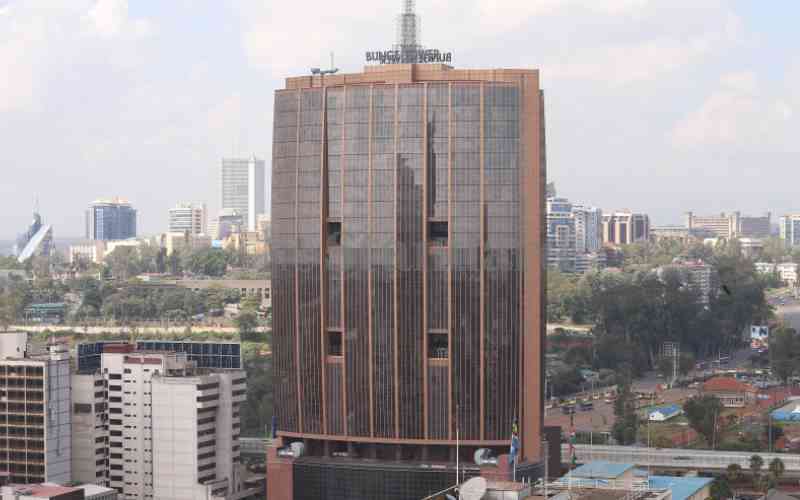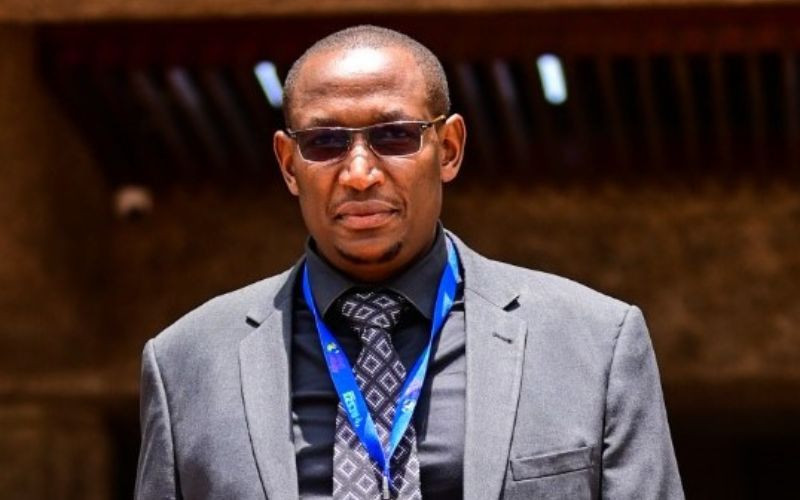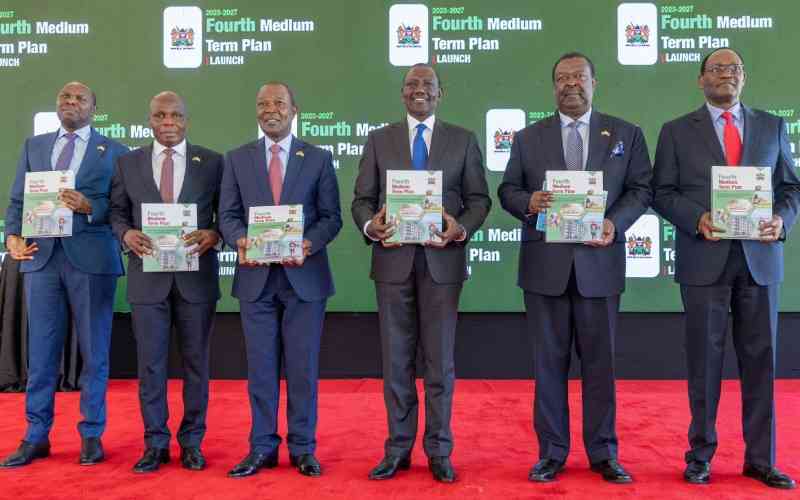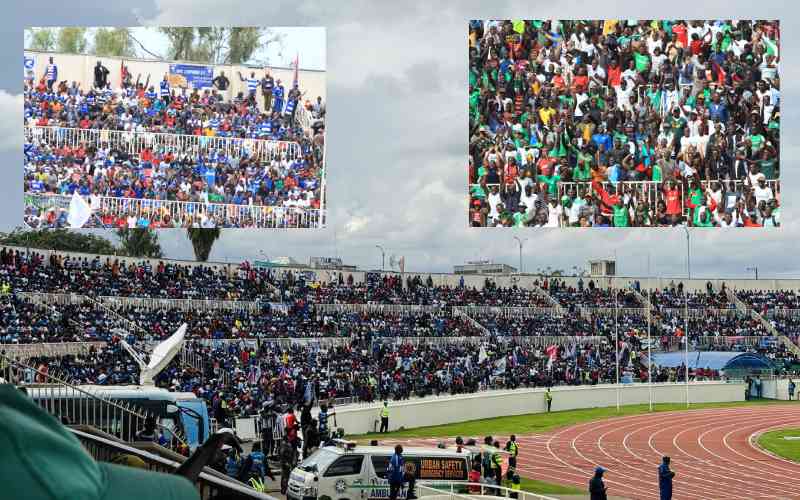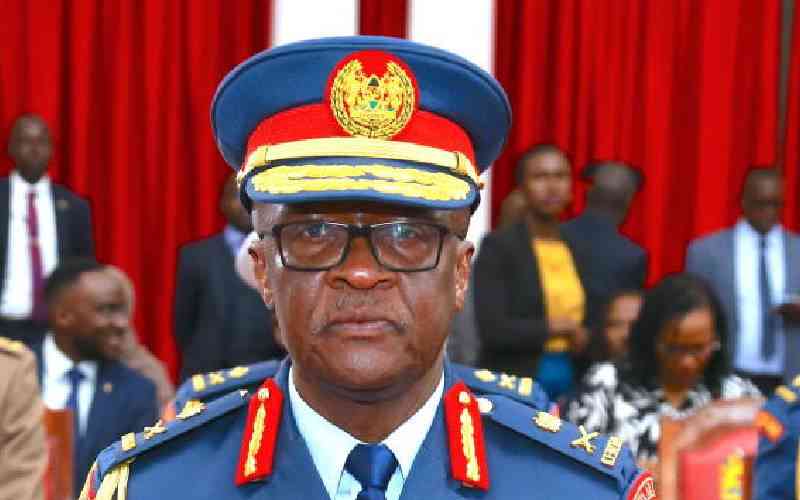By FELIX OLICK
NAIROBI, KENYA: President Uhuru Kenyatta’s case at the International Criminal Court has not yet collapsed, at least not for now, the global court has said. The ICC also said its Prosecutor Fatou Bensouda was not laying ground to have the cases dropped.
ICC Prosecutor maintained she is not yet done with the president and insisted she would not drop the charges as it happened against former Civil Service Chief Francis Muthaura.
The Gambian-born Prosecutor through ICC Spokesman Fadi El-Abdalla said she still had 30 witnesses against Mr Kenyatta and was only seeking an adjournment to tighten the case for the sake of the victims of the deadly chaos that rocked Kenya.
“The Prosecutor has simply requested an adjournment to allow the prosecution additional time to follow some leads and investigative steps,” Mr Abdalla said as he dismissed rumours that the adjournment request was meant to prepare Kenyans psychologically on the impending termination of the case. “For now, the judges’ decision on the request as well as the future of this case should not be the subject of any speculation.”
But despite Bensouda’s strong face, international law experts are pessimistic about her chances of nailing the indicted leader.
Alex Whiting, a professor of International Law at Harvard University in the United States said Bensouda’s chances of securing a conviction are slim. “It is no secret that the investigative environment for this case has become enormously difficult.
“If the Prosecution is granted the adjournment, it will be extremely challenging to develop sufficient evidence at this point to proceed with the case, but the Prosecutor seems committed to try,” he told the Standard On Sunday
Human rights organisations and the lawyer representing the victims of the deadly violence Fergal Gaynor reacted with outrage to the Prosecution decision, raising tough questions to Bensouda’s office. “The victims will want a very clear explanation as to why, after all these years, the Prosecutor has not yet collected sufficient documentary evidence — including cellphone data, intercepts, and official records — which, combined with testimonial evidence, would be sufficient to satisfy the evidentiary standards required at trial,” said Gaynor.
Initially, Bensouda had indicated that she intended to use satellite images and remote sensing data, calls and emails as part of the evidence.
She notified the Chamber that her expert — a renowned United Nations satellite specialist — would produce satellite images on the locations of interest and alleged meetings.
“This (satellite expert) specialised knowledge and skills will assist the Chamber in understanding and interpreting these images, which will in turn inform the Chamber’s analysis of evidence that underpins the crime base incidents in Nakuru, PEV-related preparatory meetings and sites of gathering of internally displaced persons in and around Nakuru and Naivasha,” said Bensouda.
Controversial meeting
Noticeable in the areas that Bensouda wanted processed in the satellite images are the precincts of State House, as she seeks to establish if the controversial meeting took place at the venue. It’s during this meeting that Mungiki sect members were allegedly asked to carry out retaliatory attacks against perceived ODM supporters in Naivasha and Nakuru.
In her list, Bensouda’s had also captured Nairobi members club on or around January 3, 2008 where it is alleged Uhuru and Muthaura met for similar preparatory meetings. But Dr Musila however says that Satellite images require corroboration by witnesses since it may not identify individuals “From Satellite images you can only see people moving. This has been used in International tribunals such as International Tribunal for Yugoslavia,” he sated. “But it will not tell you this is so and so. You will have to corroborate it with witness testimony,”
Stay informed. Subscribe to our newsletter
On Thursday, Bensouda admitted that she had inadequate evidence against the President and conceded her proof ‘does not satisfy the high evidentiary standards required at trial’.
International Law Don David Musila said that Bensouda is still likely to fail if her hopes of securing additional evidence are only pegged to the Government.
Bensouda decision to seek for a three months adjournment has triggered a flurry of speculations with some claiming that powerful nations have a hidden hand, after the United Nations Security Council declined to defer the case.
But the ICC has come out strongly to dispel the rumours insisting that the Court decisions are taken independently without external political interference. “The Prosecutors’ request as well as the judges decisions are taken independently of any political considerations. The Prosecutor acts in accordance with the Rome Statute legal framework and is guided solely by the facts and evidence gathered during an independent and impartial investigation,” Abdalla stated.
The accusations against Mr Kenyatta - crimes against humanity including murder, rape and forcible transfer - were based in part on what the prosecution contended was the use of Mr Kenyatta’s extensive family wealth to finance death squads in the midst of the violence that erupted after Kenya’s 2007 presidential election.
Jubilee Coalition strategist Tony Gachoka, says the latest development finally vindicates the President from any wrongdoing: “Separately, ICC has been dealt a major blow with regard to its credibility. This is equally a big blow to people around the President, who in their heightened demonstration of sycophancy, were misleading the President into a ditch over a case that had absolutely no merit.”
Gachoka’s sentiments are in reference to earlier advice by some Jubilee–allied politicians to the President not to attend the hearing of his case at The Hague. Some even threatened to mobilise matatu drivers to block roads leading to the Jomo Kenyatta International Airport (JKIA) on Kenyatta’s appointed day of travel.
In the meantime, the Chairman of President Kenyatta’s The National Alliance (TNA), Johnston Sakaja, has urged the Prosecutor to stop and reflect on the ongoing trial of Deputy President William Ruto.
“The witnesses she has used so far have been proven by the defence to be liars. Indeed, they are afraid to give their identities and have been providing evidence with their identities concealed,” he said in a statement to newsrooms.
Infamous meeting
In her eight-page application to the three-judge Bench, Bensouda cited the withdrawal of two key witnesses as the main reasons she had realised that the proof in her vault was not sufficient to nail President Kenyatta for crimes against humanity, including murder, rape and mass displacement of persons.
According to Bensouda, witness P-0012 had initially accepted that he attended the infamous State House meeting where it is alleged that Kenyatta sanctioned retaliatory attacks in Nakuru and Naivasha using members of the outlawed Mungiki sect.
“In P-0012’s first three interviews, he stated that he attended a meeting at Nairobi State House on or about 30th December 2007, in which he described the Accused participating in the organisation and funding of violence that later unfolded against perceived ODM supporters,” the ICC Prosecutor noted in her application to the ICC judges.
 The Standard Group Plc is a
multi-media organization with investments in media platforms spanning newspaper
print operations, television, radio broadcasting, digital and online services. The
Standard Group is recognized as a leading multi-media house in Kenya with a key
influence in matters of national and international interest.
The Standard Group Plc is a
multi-media organization with investments in media platforms spanning newspaper
print operations, television, radio broadcasting, digital and online services. The
Standard Group is recognized as a leading multi-media house in Kenya with a key
influence in matters of national and international interest.
 The Standard Group Plc is a
multi-media organization with investments in media platforms spanning newspaper
print operations, television, radio broadcasting, digital and online services. The
Standard Group is recognized as a leading multi-media house in Kenya with a key
influence in matters of national and international interest.
The Standard Group Plc is a
multi-media organization with investments in media platforms spanning newspaper
print operations, television, radio broadcasting, digital and online services. The
Standard Group is recognized as a leading multi-media house in Kenya with a key
influence in matters of national and international interest.

